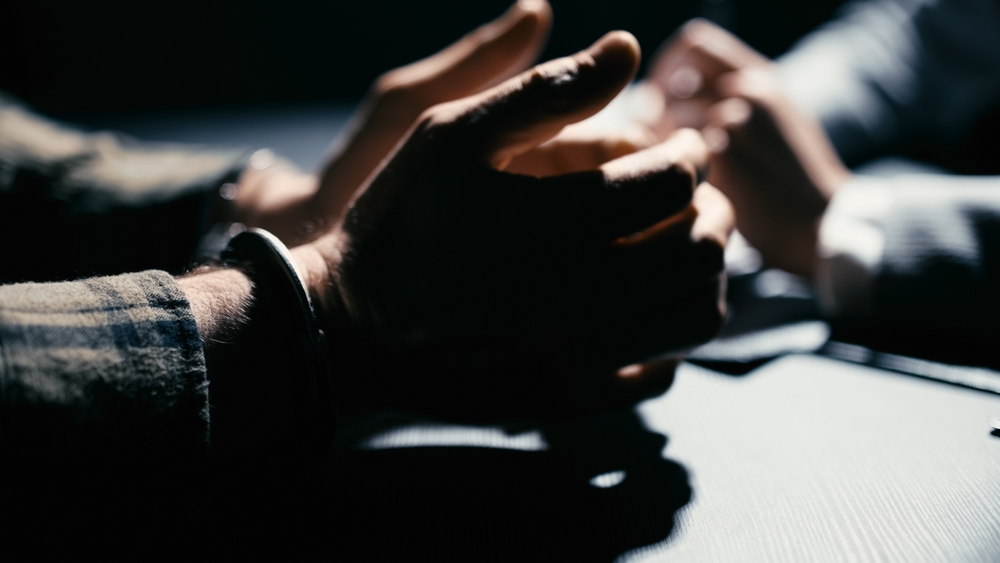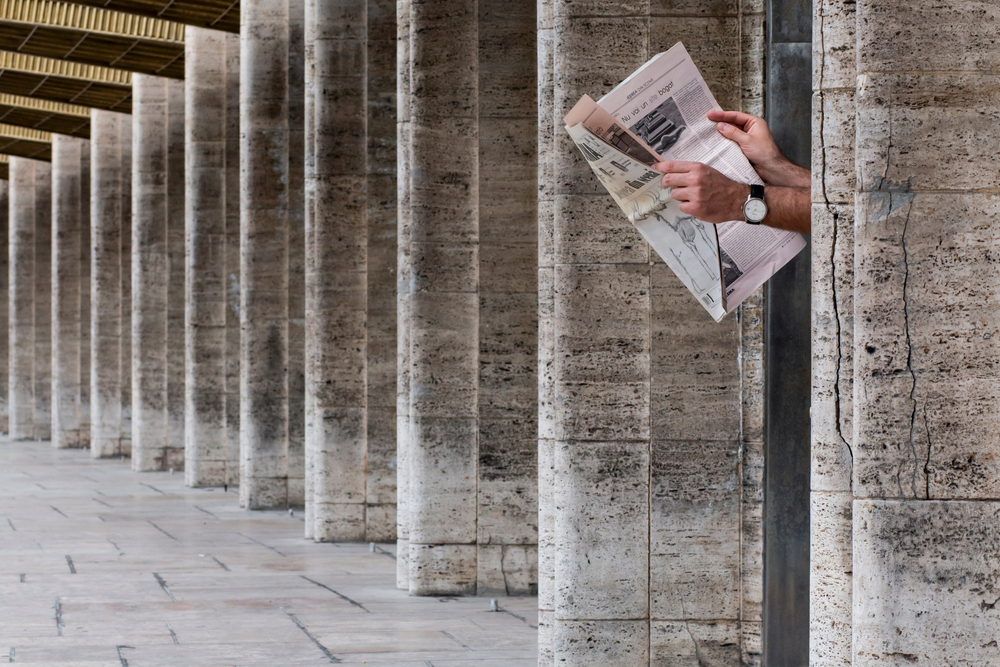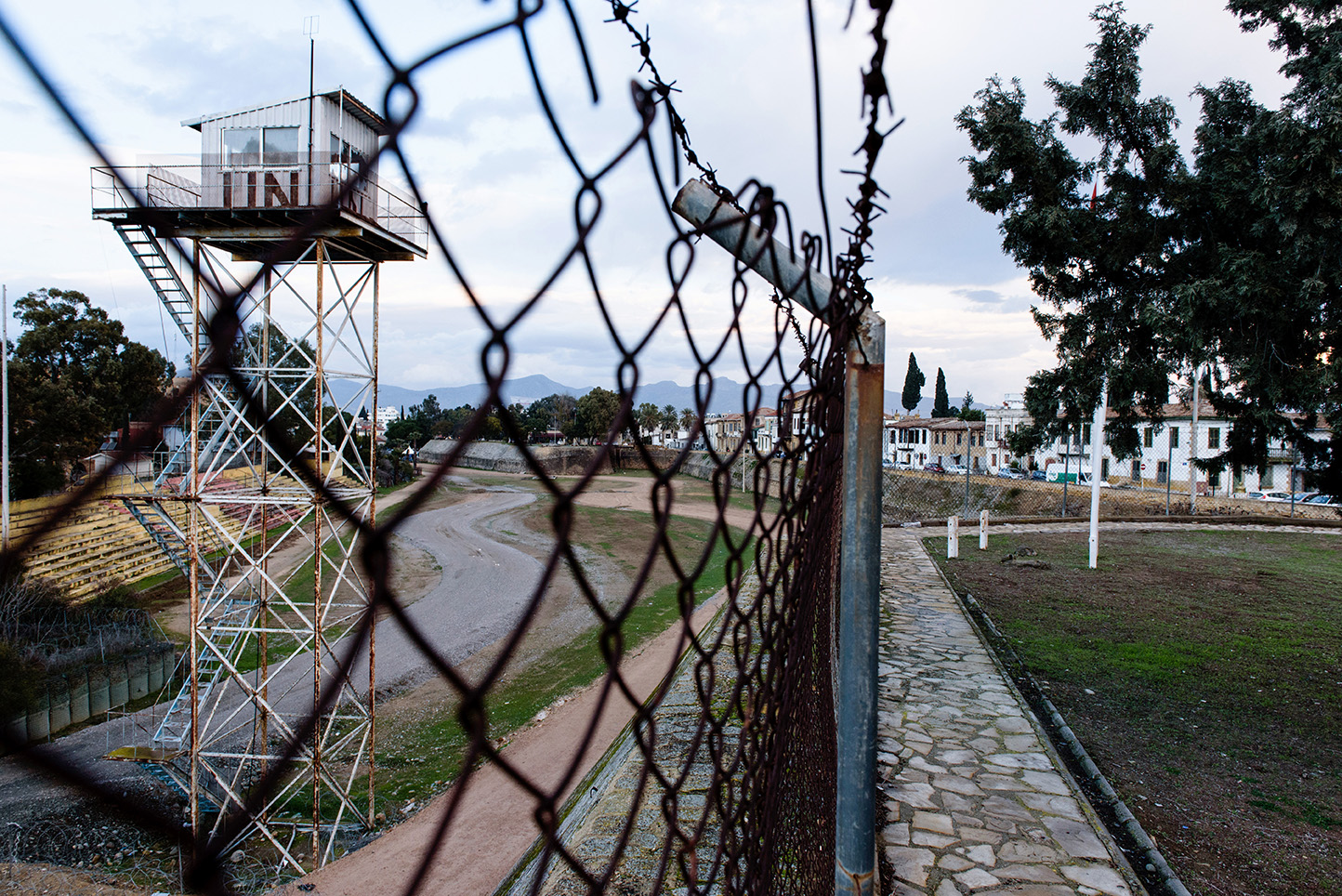Handshake in Washington, handcuffs in Baku
Trump’s recent meeting with the leaders of Azerbaijan and Armenia, Aliyev and Pashinyan, in Washington raises hopes for a peace agreement. However, there’s a paradox: while leaders shake hands abroad, those who practice reconciliation are being criminalized at home

Handshake-in-Washington-handcuffs-in-Baku
© SynthEx/Shutterstock
On 8 August 2025, President Donald Trump, flanked by Azerbaijan’s Ilham Aliyev and Armenia’s Nikol Pashinyan, sat at a table at the White House, signing a seven-point declaration and a series of cooperation agreements between Armenia, Azerbaijan and the United States.
On Monday, 11 August, Baku and Yerevan released the text of a peace deal agreed upon in March 2025, but made public following the meeting in the US.
Back at the White House, Trump, with a theatrical flourish, said: “It’s a long time – 35 years – they fought and now they’re friends, and they’re going to be friends for a long time”.
All these grand words and handshakes are largely divorced from the caotic reality of cross-border reconciliation, something that is not only ignored , but frowned upon by the authorities.
Just two months ago, in June, a young scholar was sentenced to lengthy jail time for promoting peace. Traitor labels have been used by the government affiliated actors, while civil society actors engaged in reconciliation and conflict transformation have been stripped of any opportunity to engage in meaningful efforts due to restrictive legislation adopted in the country in recent years.
This is the paradox of White House-brokered peace: leaders shake hands abroad, while at home, those who practice reconciliation are criminalized.
The case of Bahruz Samadov
Samadov, 30, is among a handful of Azerbaijani nationals who advocated for peace between Armenia and Azerbaijan. He penned scores of articles on reconciliation as well as on the state of democracy and human rights in Azerbaijan.
The young scholar was pursuing a PhD degree at Charles University in the Czech Republic when he was detained on 21 August, 2024, while visiting his grandmother in Baku. Police arrested Samadov outside his grandmother’s home and handed him over to the State Security Service.
Two days later, accused of conspiring against the state for communicating with Armenian nationals on WhatsApp, he was sentenced to four months in pretrial detention for treason.
Since the day of his arrest, the young scholar has called the charges bogus, saying they were directly linked to his peace activism and criticism of the government, both during the Second Karabakh War and in its aftermath .
Even in detention he stood firmly by his values. During one of the hearings, Samadov reportedly shouted : “Long live peace! Long live brotherhood among nations!”.
On 23 June, 2025, after almost a year in pre-trial detention, the scholar was sentenced to fifteen years in prison on treason in a closed-door trial.
Human rights organizations , press freedom watchdogs and other stakeholders condemned the proceedings as politically motivated.
On 30 June, Abzas Media – an independent, investigative journalism outlet whose entire Baku team was sentenced to long prison terms in June 2025, published an interview with Samadov.
The interviewer, Ulviyya Ali, is one of the many journalists arrested in Azerbaijan. At the time of the interview both were being held at the medical facility of the Baku Pretrial Detention Center.
Bahruz Samadov attempted suicide on 21 June after learning of the prosecutor’s request for a sixteen-year prison sentence. Ali received severe blows to the head during interrogation. In 2017 Ali was diagnosed with a pituitary adenoma. The sustained blows to her head caused vomiting and nosebleads. However, the journalist, who requires medication and regular checkups, has never been provided with adequate medical care.
During the interview, Samadov said he will “never forget the trauma” of being treated “like a terrorist” and silenced for his “peaceful stance”.
“I have maintained from the beginning that this accusation contradicted the state’s interests. Charging an academic with treason and subjecting him to torture damages the country’s reputation and undermines the so-called peace agenda. The true motivation behind the accusations remains unclear. I am neither a politician nor someone with a mass readership. I am simply a radical critic. The State Security Service told me that the problem was Armenians quoting my articles”, Samadov told Ali.
Shortly after Samadov’s arrest, several of his friends were questioned as witnesses. Samad Shikhi, a young writer, was prevented from boarding a flight in Baku. Shikhi was interrogated under duress in harsh conditions. Although he was eventually released, he was handed a travel ban, with an obligation to remain silent and not post anything on his social media accounts. Shikhi managed to leave Azerbaijan after nine months of living in a constant state of anxiety, fearing for his safety.
The repression doesn’t stop
Cavid Agha, an independent researcher from Azerbaijan, was on his way to Lithuania to pursue his studies when he was stopped at the airport.
“They stopped me for interrogation [and] one of the first things they said was: ‘You are here because you are Bahruz’s close contact’”, recounted Agha in a recent interview with Global Voices.
Following the second Karabakh War, many anti-war activists were reprimanded for their pacifist views and calls for an end to military fighting. Among them are Ahmed Mammadli , Emin Ibrahimov, Emrah Tahmazov, and others .
Before his arrest, Samadov himself wrote for Eurasianet about targeted harassment and campaigns against peace activists. These labels and accusations are not new and have been used in the past to target government critics and members of civil society in Azerbaijan.
Without a commitment to free Samadov and defend the rights of activists, the peace deal risks remaining symbolic. Real reconciliation needs support for cross-community dialogue, not repression.
To move from signed agreements to societal healing, releasing peace advocates like Samadov could signal an actual goodwill gesture, vital for public legitimacy of peace.
By abandoning state propaganda and narrative – used to target peace advocates – and ensuring legal protection for persons involved in cross-border initiatives, Azerbaijan would take a further step in the peace process.
Reversing restricted legislation that has made the work of civil society in Azerbaijan impossible and instead supporting confidence-building initiatives between the two nations can help foster trust.
Engaging all parties in the next phase, including displaced communities and civil society, and ensuring that written agreements actually reflect lived experiences, can help shift the narrative from peace as a spectacle to peace as a process, bringing reconciliation where it matters most: among people.
Ahead of the meeting at the White House, Human Rights Watch released a dispatch urging the Trump administration to use the meeting with President Ilham Aliyev as an opportunity “for the United States to raise urgent concerns about Azerbaijan’s staggering crackdown on dissent”.
Since the 2020 Karabakh war, Azerbaijani authorities have intensified arrests and crackdown on an already fragile civil society targeting journalists , rights defenders , political activists and many others on bogus, trumped up charges.
This repression is reinforced by a state propaganda ecosystem that portrays Armenia as a permanent existential enemy. In this narrative, speaking with Armenians and advocating reconciliation means siding with the enemy, and therefore betraying the nation.
It would be naive to expect any meaningful engagement from the Azerbaijani authorities in the absence of a vibrant civil society and independent media, leading observers to wonder whether Azerbaijani authorities’ commitment to lasting peace is just a facade.









